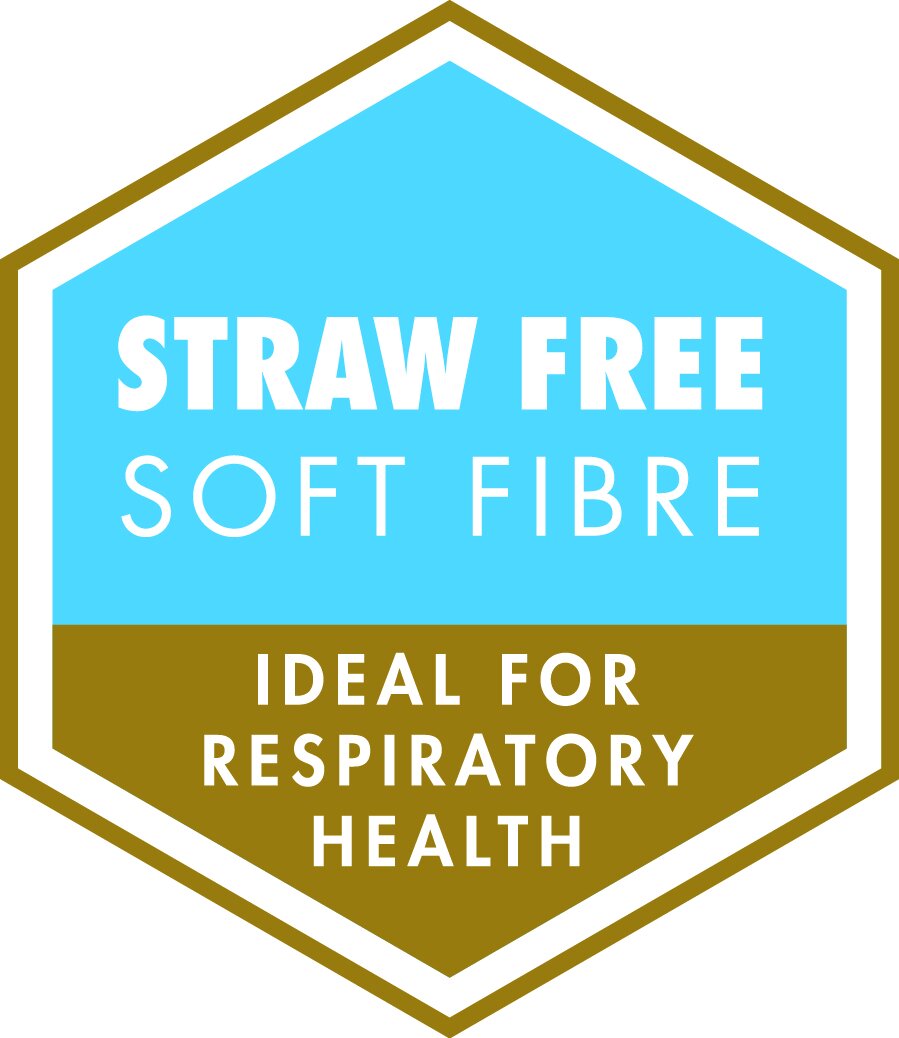Why a lack of fibre can compromise horse health and performance
/Why a lack of fibre can compromise horse health and performance
Gastric ulcers can affect any horse or pony regardless of age, breed, sex and discipline. In fact, it has been estimated that up to 90% of racehorses have ulcers. Clare Barfoot RNutr, Marketing and Research and Development Director at SPILLERSTM explains why……
The problem with stomach acid
The horse has evolved to eat for up to 18 hours a day, with 65% of the gut devoted to digesting fibre. The horse’s stomach produces acid continuously, but they can only produce acid-neutralising saliva when they chew. This means horses on a restricted fibre diet such as racehorses that limited access to forage are more susceptible to gastric ulcers. Feeding meals high in cereals can also increase the risk of gastric ulcers due to excess fermentation in the stomach. Exercise itself may increase gastric acid production and it also increases pressure in the abdomen, which can result in gastric acid ‘splashing’ onto the upper region of the stomach.
The benefits of forage
The key to reducing the risk of ulcers is to provide as much of the diet as possible as forage (no less than 15g/kg bodyweight dry weight per day) this means 9kg of hay for the average racehorse, whilst restricting starch intake to less than 2g/kg bodyweight per day (1g/kg bodyweight per meal). Feeding plenty of forage and/or chopped fibre forms a protective mat on top of the stomach contents, thus helping to prevent ‘gastric splashing’. It also helps to add chopped fibre to help extend eating time and increase saliva production. Alfalfa is particularly useful as the high protein and calcium content may help to buffer stomach acid.
How SPILLERSTM Ulca Fibre can help
SPILLERS Ulca Fibre contains short-chopped alfalfa to extend eating and chewing time, encouraging saliva production and increasing the horse’s ability to buffer damaging stomach acid. The high oil content gives slow release energy for optimum condition and a full range of vitamins and minerals includes vitamin E for immune support and muscle health. High-quality protein includes lysine to support muscle development and performance. SPILLERS Ulca Fibre can be fed on its own or in addition to a suitable low starch compound feed such as SPILLERS Ulca Power Cubes.
SPILLERS Ulca Fibre was used alongside SPILLERS HDF Power Cubes in a recent scientific study that was the first to prove that diet can have a beneficial effect on gastric health. Horses that were clinically treated for grade three and four ulcers were split into two groups; one group had their diet changed at the start of omeprazole treatment, while the other remained on the pre-treatment diet.
The dietary change group maintained their improved ulcer score post treatment, whereas overall the horses in the group remaining on the pre-treatment diet regressed back to their pre-treatment ulcer scores, proving the value of dietary management in reducing the risk of ulcers.
SPILLERSTM Ulca Power Cubes
SPILLERS has also launched SPILLERS Ulca Power Cubes, a high energy, low starch cube for racing and performance horses prone to gastric ulcers. Based on SPILLERS HDF Power Cubes which are a favourite in the racing industry, SPILLERS Ulca Power Cubes are just 12% starch and have added functional ingredients to support gastric health. They are ideal to feed alongside a chopped fibre containing alfalfa to help extend eating time and buffer stomach acid.
Both products carry the BETA EGUS Approval Mark demonstrating they have been independently assessed as suitable for horses prone to gastric ulcers.
* Luthersson N, Bolger C, Fores P , Barfoot C, Nelson S, Parkin TDH & Harris P (2019) Effect of changing diet on gastric ulceration in exercising horses and ponies following cessation of omeprazole treatment JEVS 83 article 102742
To find out more about our feeds and how we can help to support your racing yard, please visit our website www.spillers-feeds.com or call/email one of our dedicated Thoroughbred Specialists.
CLICK HERE to return to issue contents.
BUY THIS ISSUE IN PRINT OR DOWNLOAD
4 x print issue and online subscription to European Trainer & online North American Trainer. Access to all digital back issues of both editions.
Your subscription will start with the October - December 2025 issue - published at the end of September.
If you wish to receive a copy of the most recent issue, please select this as an additional order.











